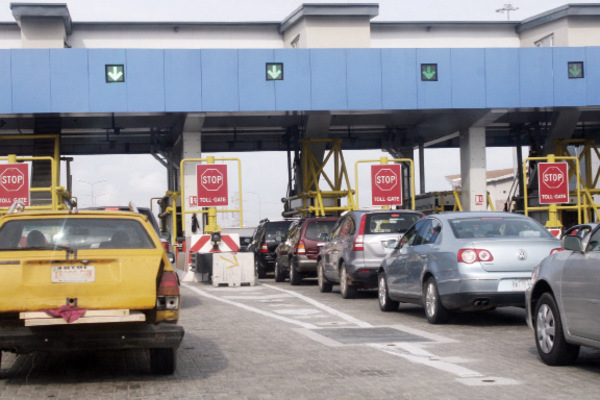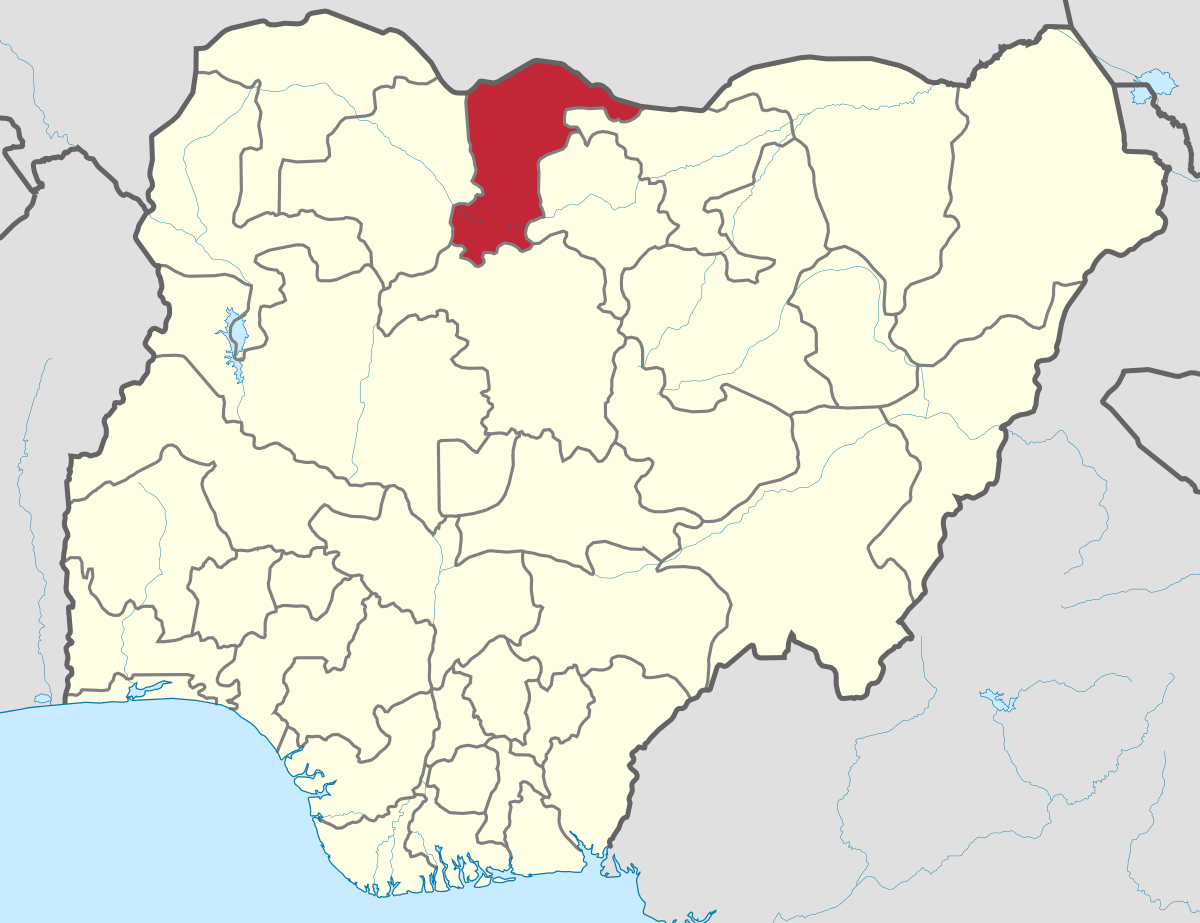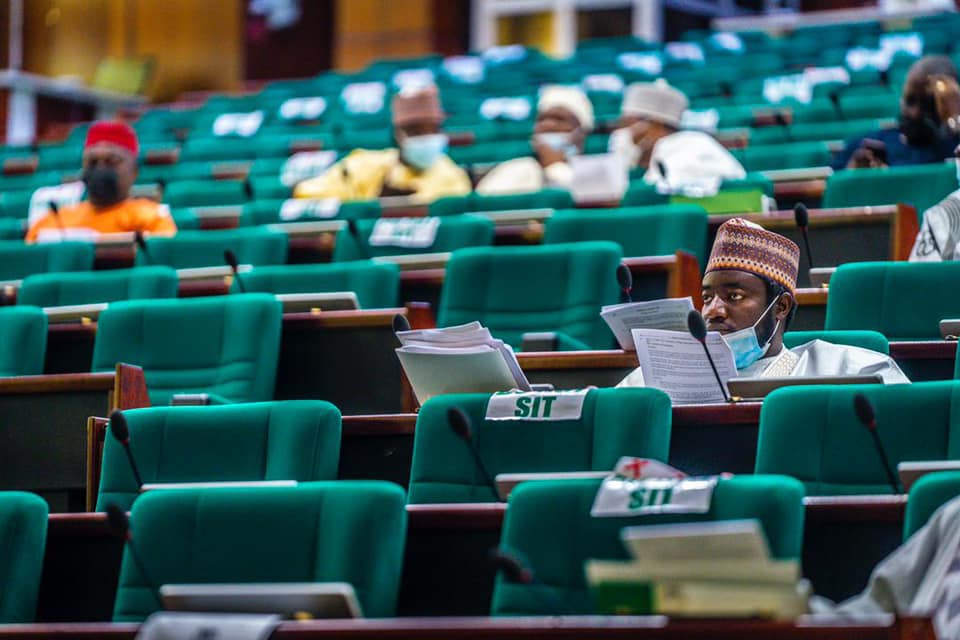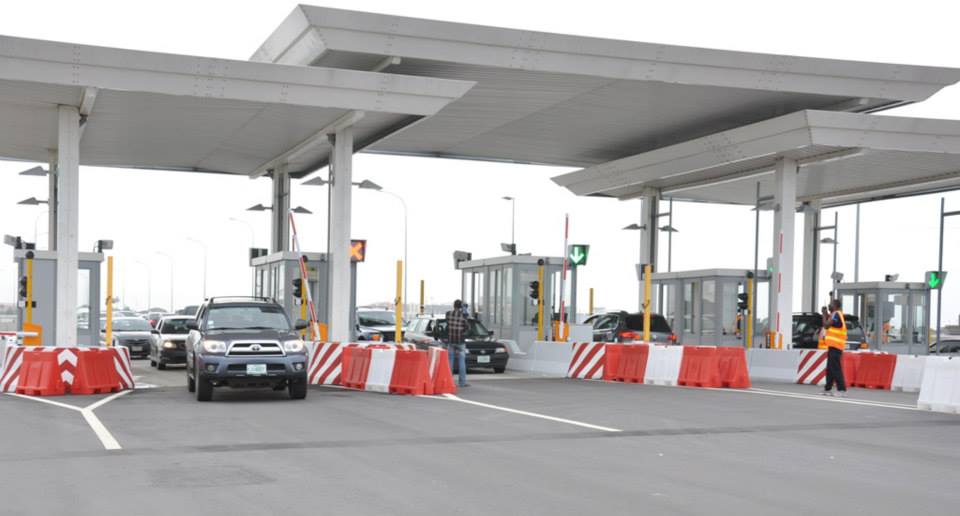Economy
FG Reveals 10-Point Roadmap To Save Economy


**To Return Toll Gates
By Modupe Gbadeyanka
Federal Government has revealed steps it hopes to take to salvage the country’s economy, which has been battling with recession for months.
Minister of Finance, Mrs Kemi Adeosun, who spoke at an event in Lagos, disclosed that the FG would focus on 10 points to help Nigeria out of the economic downturn.
Mrs Adeosun, who represented the Vice President, Mr Yemi Osinbajo, at the annual dinner of the Lagos Business School, noted that the 10-point roadmap would address the major problems dragging the economy backward.
According to her, the Federal Government’s Fiscal Roadmap will tackle obstructions to growth that will drive productivity, generate jobs and broaden wealth creating opportunities to achieve inclusive growth.
She said further that much attention would be focused on infrastructure deficit to unlock productivity, improve business competitiveness and create employment.
“Government would actively partner with the private sector to achieve this by use of a number of new funding platforms. These include the Road Trust Fund, which will develop potentially ‘tollable’ roads, and the Family Homes Fund which is an ongoing PPP initiative for funding of affordable housing,” she said at the event.
She added that the tax system would be reviewed to ensure companies get tax relief for investment in roads on a collective basis, subject to approval by FIRS and the Ministry of Works.
According to the Minister, only two firms, Dangote and Lafarge have only been able to get such.
Mrs Adeosun listed the government’s 10-point roadmap as follows:
The fiscal roadmap is detailed in the attached 10-point plan:
Fiscal Roadmap 2017
Fiscal Policy Initiative
Expected Impact
- Recognise inherited debt profile after a robust audit process:
- Introduce promissory note programme to finance verified liabilities
- Issue debt certificates to contractors, Ministries, Departments & Agencies (MDAs), and State Governments
- Improve cash flow of businesses
- Improve Banks’ Non-Performing Loans (NPLs)
- Free up Banks’ balance sheet for lending to private sector
- Improve government’s business interaction with the private sector
- Mobilise private capital to complement Government spending on infrastructure:
- Roads Trust Fund
- Family Homes Fund
- Extend infrastructure tax relief to a collective model to attract clusters of corporate entities
- Expand the provision of infrastructure
- Drive growth of non-oil sector.
- Drive economic growth
- Strengthen fiscal/monetary handshake:
- Replace administrative measures on list of 41-items with fiscal measures to reduce demand pressure in parallel market
- Encourage domestic food production through specific incentives e.g. accelerated depreciation on food manufacturing equipment and Zero (0%) duty on green houses
- Planned revitalisation of refineries
- Increase Diaspora remittances via participation in the buyer support scheme for the Family Homes Fund
- Reduce demand for US Dollars
- Increase supply of US Dollars
- Incentivise exports:
- Restructure the Export Expansion Grant (EEG) to a tax credit system
- Rationalise tariffs and waivers in key export sectors
- Encourage/incentivise non-oil exports
- Drive import substitution
- Encourage investment in specific sectors through fiscal incentives:
- Accelerated depreciation on equipment in strategic sectors e.g. food processing, mining and power
- Rationalise tariffs and waivers in priority sectors
- Drive investment in strategic sectors
- Continue expansion of fiscal space through revenue enhancement and cost consolidation:
- Customs Single Window (being implemented through a Private Public Partnership (PPP) scheme)
- Template for non-allowable expenses for government agencies.
- Overhead cost control by the Efficiency Unit
- Continuous risk based audit by the Presidential Initiative on Continuous Audit
- Revenue enhancement
- Cost containment
- Improve fiscal discipline at Sub-National level:
- Extension of efficiency unit at Sub-National level
- Fast track municipal bond issues to deepen the bond market
- Conversion to International Public Sector Accounting Standards by all State Governments.
- Improved fiscal position at Sub-National level
- Enable and accelerate Recoveries process:
- Whistle-blower scheme
- Centralised database on recovered assets
- Asset tracing
- Professional management of recovered assets
- Increased efficiency of Recoveries process
- Increased budgetary funding availability from Recoveries
- Rebalance debt portfolio to extend maturity and optimise debt service cost:
- Rebalance public debt portfolio with increased external borrowing (60:40 target)
- Extend maturity profile of public debt portfolio
- Deploy long-term debt instruments including Infrastructure and Retail Bonds
- Maximise use of concessionary loans
- Rebalanced debt profile withimproved debt service to revenue ratio
- Catalyse Micro, Small and Medium Enterprise (MSME) growth through specific measures to improve capacity and access to finance:
- Development Bank of Nigeria (US$1.3bn)
- Increase share of business awarded to MSMEs from Government contracts
- Tax harmonisation and tax incentives
- Accelerated depreciation
Economy
Katsina Provides Additional N500m for Women-owned Businesses

By Modupe Gbadeyanka
The Katsina State government has offered additional N500 million to support women-owned businesses in the state as part of efforts to boost economic activities.
Governor Dikko Umaru Radda announced this at the Women of Influence and Investment Summit hosted by the Katsina Inner Wheel Development Initiative (KIWDI), in partnership with Access Bank Plc.
The event brought together women entrepreneurs, investors, policymakers, and development partners to advance women’s economic empowerment in the state.
The summit, themed Where Influence Meets Investment, focused on positioning women as key drivers of enterprise, leadership, and inclusive growth. It also highlighted the growing collaboration between Access Bank and the Katsina State Government on financial inclusion and SME development.
Mr Radda noted that investing in women was critical to building a productive and sustainable economy.
In her welcome address, the founder of KIWDI, Ms Amina Zayyana, said the summit was designed to connect women to opportunities, training, finance, and markets, stressing that when women-led businesses grow, families and communities benefit.
On her part, the Group Head of Women Banking at Access Bank, Mrs Nene Kunle-Ogunlusi, said the lender was proud to partner with Katsina State and KIWDI in advancing women’s economic participation.
“At Access Bank, we are committed to moving women from potential to prosperity. Through our Women Banking proposition and the ‘W’ Initiative, we provide access to finance, capacity building, and market linkages that help women start, stabilise, and scale their businesses,” she said.
She noted that the W Initiative, launched in 2014, is Access Bank’s flagship women- focused platform, designed to meet the real needs of women entrepreneurs and professionals across Nigeria and Africa.
“Our partnership with Katsina State goes beyond banking. It is about supporting economic empowerment, SME growth, and financial inclusion, especially for women,” she added.
Mrs Kunle-Ogunlusi noted that Access Bank was proud to participate not just as a financial institution, but as a long-term partner in women’s economic advancement across Nigeria and Africa.
“At Access Bank, we made a deliberate decision to change that, not with charity, but with strategy. Not with sympathy, but with solutions. The W Initiative, which was launched in 2014, is Access Bank’s flagship women-focused proposition, created to respond to the real needs of women,” she said.
The banker disclosed that through the W Initiative, the bank has disbursed over N314 billion in loans to women, supporting over 3.6 million female loan beneficiaries, and helping women-owned businesses start, stabilise, and scale up.
Economy
2026 Budget: Reps Threaten Zero Allocation for SON, NAICOM, CAC, Others

By Adedapo Adesanya
The House of Representatives Public Accounts Committee (PAC) has recommended zero allocation for the Standards Organisation of Nigeria (SON), the National Insurance Commission (NAICOM), and the Corporate Affairs Commission (CAC), among others, in the 2026 budget for allegedly failing to account for public funds appropriated to them.
The committee, at an investigative hearing, accused the affected ministries, departments and agencies (MDAs) of shunning invitations to respond to audit queries contained in the Auditor-General for the Federation’s annual reports for 2020, 2021 and 2022.
The affected MDAs include the Federal Housing Authority (FHA), the Federal Ministry of Housing and Urban Development, the Federal Ministry of Women Affairs and Social Development, the National Business and Technical Examinations Board (NABTEB), and the Nigerian Meteorological Agency (NiMet).
Others are Federal University of Gashua; Federal Polytechnic, Ede; Federal Polytechnic, Offa; Federal Medical Centre, Owerri; Federal Medical Centre, Makurdi; Federal Medical Centre, Bida; Federal Medical Centre, Birnin Kebbi; Federal Medical Centre, Katsina; Federal Government College, Kwali; Federal Government Boys’ College, Garki, Abuja; Federal Government College, Rubochi; Federal College of Land Resources Technology, Owerri; Council for the Regulation of Freight Forwarding in Nigeria; and the FCT Secondary Education Board.
The PAC chairman, Mr Bamidele Salam, while speaking on the decision of the committee to recommend a zero budget for the defaulting MDAs, stated that the National Assembly should not continue to appropriate public funds to institutions that disregard accountability mechanisms.
“Public funds are held in trust for the Nigerian people. Any agency that fails to account for previous allocations, refuses to submit audited accounts, or ignores legislative summons cannot, in good conscience, expect fresh budgetary provisions. Accountability is not optional; it is a constitutional obligation,” he said.
The panel maintained that its recommendation for a zero budget for the affected MDAs is aimed at restoring fiscal discipline and strengthening transparency across federal institutions and conforms with extant financial regulations and the oversight powers of the parliament.
Economy
SEC, NOA to Sensitize Nigerians to Illegal Investment Schemes

By Adedapo Adesanya
The Securities and Exchange Commission (SEC) and the National Orientation Agency (NOA) have partnered to enlighten Nigerians on illegal investment schemes in Nigeria.
The director-general of SEC, Mr Emomotimi Agama, stated this during a meeting with his NOA counterpart, Mr Lanre Issa-Onilu, in Abuja on Thursday, according to a statement from SEC.
Mr Agama said the capital market is an available tool for national development, but beyond all that, there is a tendency for people to do the wrong things that will lead to the impoverishment of Nigerians.
According to him, these are not supposed to be, but many people fall victim due to a lack of knowledge. He stated that these schemes are springing up daily, and those involved are defrauding Nigerians, as people are always gullible because of the need to survive.
“As a management, we decided to move out to enlighten people; we cannot assume that people know, we need to go out for mass communication, hence this collaboration. It is only by co-operation that we can achieve the purpose of our existence,” he stated.
The SEC DG solicited the co-operation of the NOA to reach Nigerians because of its capacity and vast network of mass media, in a bid to ensure that the message reaches every nook and cranny of the country.
“This collaboration is important because it will go a long way in ensuring that Nigerians are no longer victims of these fraudulent schemes. We appreciate that you value this country, and we value the work that you do,” he added.
On his part, Mr Issa-Onilu commended the SEC for the capital market’s achievements in recent times, adding that the commission has not been celebrated enough.
“We commend you and thank you on behalf of the country, but most Nigerians are not aware of the opportunities in the capital market. An ignorant society will fall victim to many things that are avoidable. It is our responsibility to enlighten people to make the right decisions.
“We request that you provide information on what you do to enable us to propagate them. Our primary assignment is to serve all government institutions as the communications arm. We do a lot of enlightenment in places like the religious houses, motor parks, town halls, among others.”
Mr Issa-Onilu said the NOA engages in civic education to create the right values that will help most Nigerians be better citizens, saying that “many Nigerians are deficient in good behaviour. Both the Ponzi scheme promoters and those who patronise them are suffering from the wrong attitude and values.
“We have to encourage people to have the right attitude so they do not fall victim to Ponzi schemes. We have created a lot of platforms to interact with Nigerians.”
-

 Feature/OPED6 years ago
Feature/OPED6 years agoDavos was Different this year
-
Travel/Tourism10 years ago
Lagos Seals Western Lodge Hotel In Ikorodu
-

 Showbiz3 years ago
Showbiz3 years agoEstranged Lover Releases Videos of Empress Njamah Bathing
-

 Banking8 years ago
Banking8 years agoSort Codes of GTBank Branches in Nigeria
-

 Economy3 years ago
Economy3 years agoSubsidy Removal: CNG at N130 Per Litre Cheaper Than Petrol—IPMAN
-

 Banking3 years ago
Banking3 years agoSort Codes of UBA Branches in Nigeria
-

 Banking3 years ago
Banking3 years agoFirst Bank Announces Planned Downtime
-

 Sports3 years ago
Sports3 years agoHighest Paid Nigerian Footballer – How Much Do Nigerian Footballers Earn














